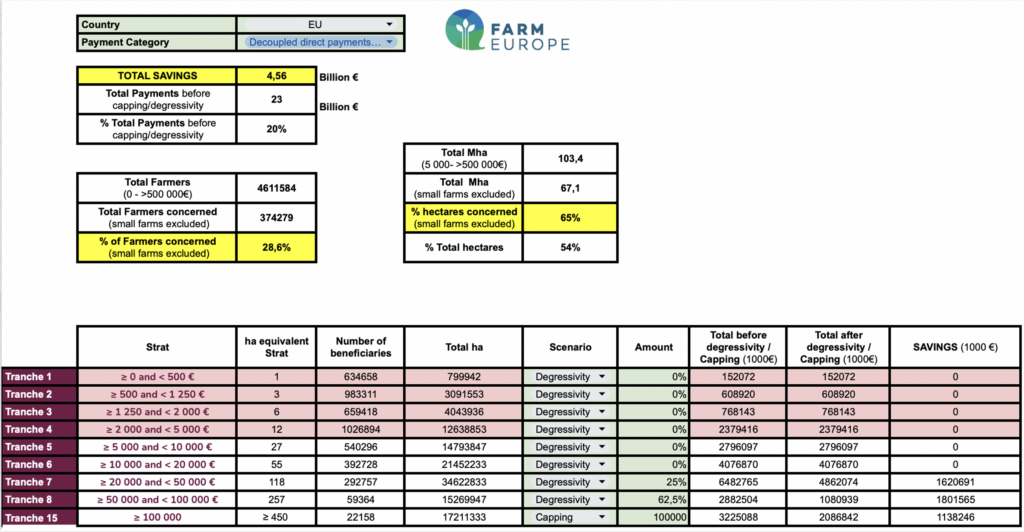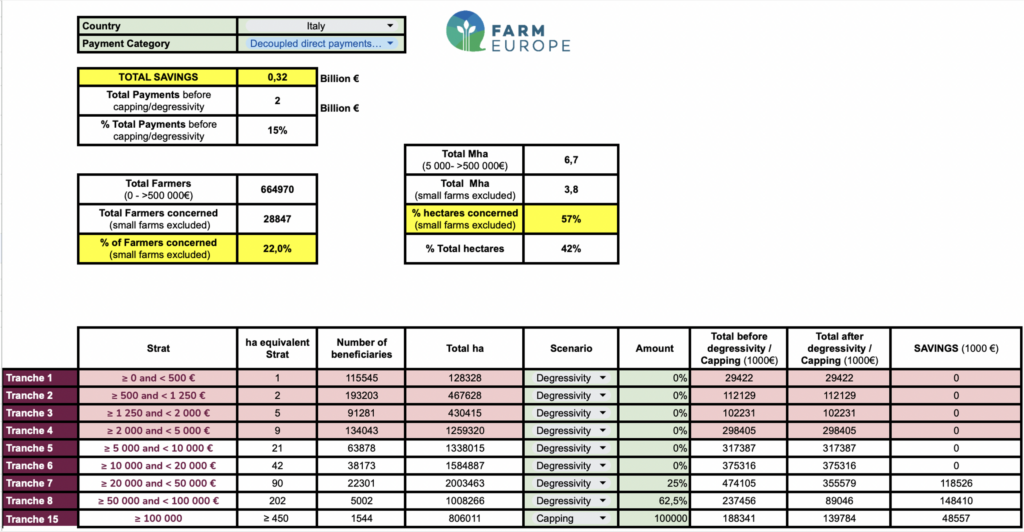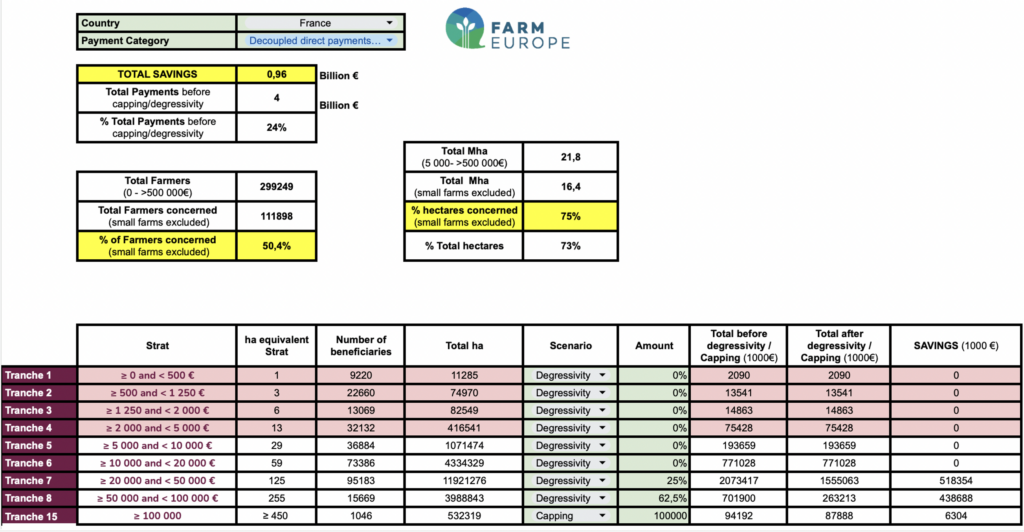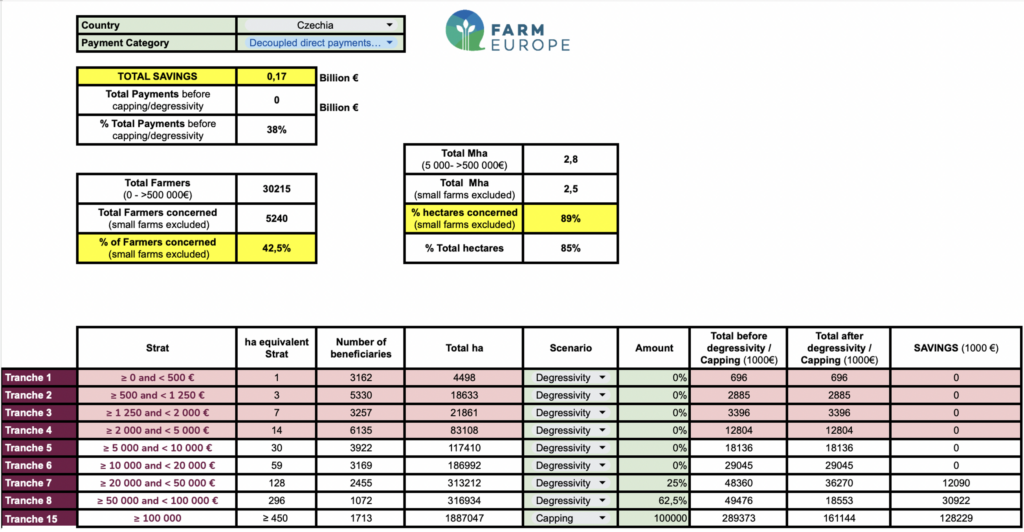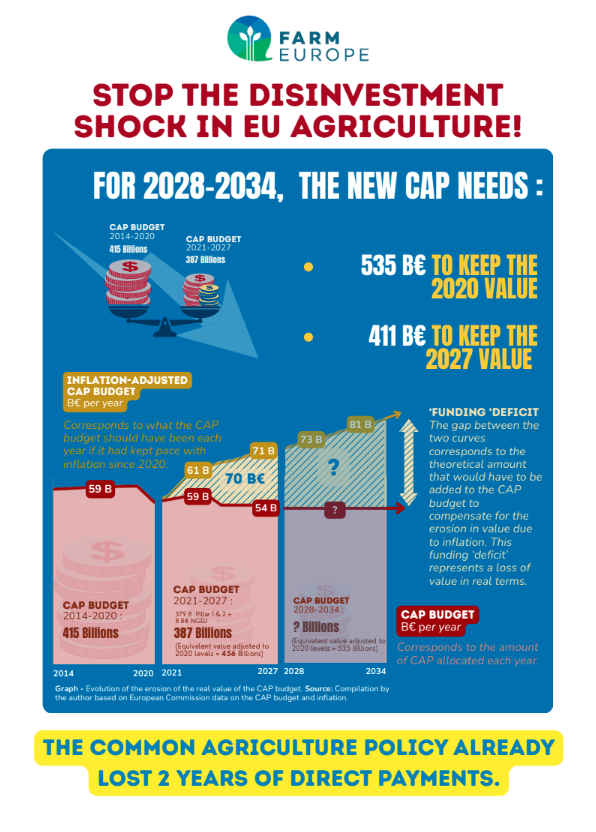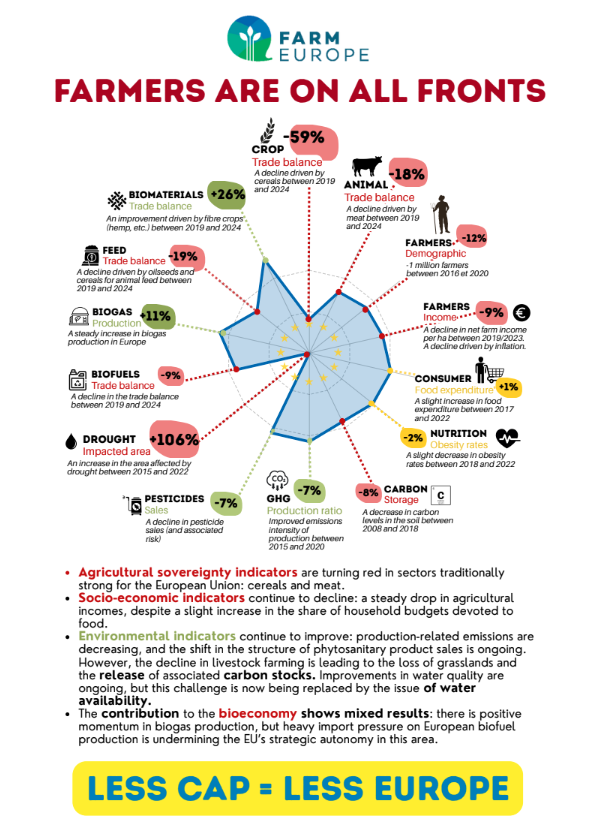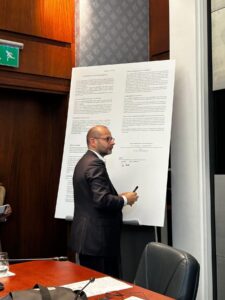The 1st of July marks the beginning of the Danish Presidency of the Council of the European Union, that Denmark will hold until 31st December 2025. Under the slogan “A strong Europe in a changing world”, the Danish Presidency sets the ambition to deliver on building a secure, competitive and green Europe.
Whilst we welcome the drive for further simplification of the CAP, for unlocking the potential of NGTs, and for developing the bioeconomy sector, there are other very important points that unfortunately would run counter farmers interests.
On the Multiannual Financial Framework, the Danish telegraph that they favour a lower CAP budget. In fact, they state that they will focus on the quality of spending rather than in the total amount. We wonder where the quality of spending is not good, and where Denmark would support budget cuts.
On the link between the CAP and climate and environmental policies the Presidency points towards greater coherence. We have already seen those policy developments under the aegis of former Commission Vice-President Timmermans. The aim is to condition the CAP to the whole mesh of climate and environmental regulations, e.g. on GHG emissions. That could lead for example to integrating agriculture in the ETS, which would result in higher production costs.
The hard stance of Denmark on climate issues is confirmed by their determination to press on with the objective of cutting GHG emissions by 90% in 2040. The current trajectory of GHG reductions has been achieved through a number of measures, including the ETS and ever more restrictive standards on emissions. The negative impact on production costs and competitiveness in many sectors is increasing, and can only accelerate if the EU presses on harder. The EU is only now , a few months from its implementation, facing the wide-ranging problems on the application of the CBAM. Pressing on harder would most likely lead to fully integrating agriculture into the restrictive and costly measures already applied to the automotive, steel, cement and other sectors.
Pressing on to cut more emissions through painful economic measures makes little sense when the rest of the world either does little, or is even reversing course.
We believe that climate and environmental goals should be reached through well designed strategies, including investing in technologies that deliver sustainable growth. That is the opposite of achieving very ambitious targets through policies that cause economic contraction, lower production, fewer jobs.
Here are the most relevant elements mentioned in the program:
- Multiannual Financial Framework
The Danish Presidency will work for a financially responsible EU budget that delivers a focused, simple, and effective response to the EU’s strategic challenges. Indeed, Denmark will focus on setting an ambitious and financially responsible course for the Council’s work, aiming to deliver a first draft negotiating box to guide further negotiations. Danemark already underlined that it will focus on the quality of the spendings rather than the total amount as such. In this context, the Danish Presidency will continue talks on a possible revision of the Council Decision on own resources.
- Post-2027 Common Agricultural Policy (CAP)
Regarding the next Common Agricultural Policy, the Danish Presidency will work towards making daily life easier for farmers, fishers, and food producers through simplification and better regulation but also innovation and development. Denmark will focus on 4 key priorities for the CAP post 2027:
- A green, simple and market-oriented Common Agricultural Policy
The Danish Presidency will focus on ensuring a green, simple and market-oriented Common Agricultural Policy that supports climate and environmental measures while strengthening competitiveness and innovation.
In this context, the Presidency intends to conclude negotiations on the agricultural simplification package and start negotiations on the Common Agricultural Policy, underlining that it must support rural development, organic farming, generational renewal, and animal welfare, while ensuring greater coherence with sectoral legislation, including climate and environmental regulations.
- An innovation-friendly and competitive agriculture and food sector
Playing a crucial role in the development of resilient crops, the Presidency will work to conclude negotiations on proposals regarding plants developed by new genomic techniques.
Bioeconomy and bio-based solutions also contribute significantly to sustainable agricultural and food production. The Presidency will therefore place focus on the upcoming EU Biotech Act and address the need of flexibility, reduction of administrative burdens, and regulatory simplification to develop these solutions.
- A sustainable food system and a strong internal market
Regarding the strengthening of the position of farmers in the food supply chain, the Danish Presidency is determined to conclude negotiations on unfair cross-border trade practices and on proposed amendments to the Common Market Organisation for agricultural products. Moreover, the Presidency will focus on the potential of a common EU action plan for plant-based foods and a common EU protein strategy.
- A single market focused on animal, human and plant health
The Danish Presidency is determined to advance negotiations on the proposal relating to the protection of animals during transportation. Furthermore, the Presidency will focus on identifying solutions to antimicrobial resistance, communicable animal diseases and developing new plant pests.
- Enlargement
The Danish presidency considers further enlargement of the EU as a geopolitical necessity, notably with Ukraine, highlighting that it is the only way for the EU to effectively contribute to stabilising the European continent and strengthening the resilience of countries vulnerable to unwanted external influence.
- Climate Policy
The fight against climate change and the pursuit of the EU’s emissions reduction objectives will be one of the topics animating the Danish Presidency. Denmark will indeed prioritise reaching an agreement on the revision of the European Climate Law, establishing a net GHG emissions reduction of 90% by 2040. Denmark will have to work on a tight schedule here, especially because the EU is expected to submit—in line with the Paris Agreement—its new nationally determined contributions (NDCs) for the period up to 2035 before the COP 30 in Brazil on 10-21 November 2025.
The goal of the Danish presidency is to derive the 2035 target from the one set for 2040, which would imply finding a deal with the co-legislator by September of this year. However, it is still unclear whether Denmark will be able to advance these files in parallel or if it will have to treat them as separate objectives. This question is pivotal, as it directly influences the level of ambition attached to the targets. A linear trajectory would place the 2035 target midway between 2030 and 2040, ensuring consistency and gradual progression. However, decoupling the two could allow for a less ambitious 2035 target, potentially undermining the 2040 objective.
Adding pressure to the negotiations on this file is France’s position voiced by President Macron during the recent European Council meeting. The latter is pushing to extend the delay of the negotiations around the European Climate Law Amendment, in order to allow for a “democratic debate within the Council”. He also opposed the idea of deriving the 2035 target from the 2040 objective, stating that only the former must be urgently defined. Other Member States, such as Hungary, are also against this methodology, although the majority of countries seem to be aligned with the Danish position.
Furthermore, the Presidency will prioritise efforts to reinforce the Carbon Border Adjustment Mechanism (CBAM) regulation, with the goal of preventing carbon leakage while supporting the green transition and enhancing European competitiveness.
- Environmental Policy
When it comes to environmental issues, the Danish Presidency will initiate discussions on the EU’s environmental policy towards 2030.
According to the programme, Denmark will prioritise advancing negotiations to strengthen the circular economy and enhance the EU’s strategic autonomy by securing the supply of critical natural resources. Political discussions on the forthcoming EU bioeconomy strategy will be a key focus. In this sense, we hope this strategy will be an opportunity for a comprehensive reflection around biomass availability and the role of agricultural production in ensuring the supply.
Moreover, the country will support international efforts to adopt a legally binding UN agreement to end plastic pollution (the next round of negotiations will be held from 5-14 August in Geneva) and lead Council discussions on the European Water Resilience Strategy, setting a course for safeguarding water supply and quality, boosting resilience, and promoting innovation in water technologies.
The Presidency is also prepared to initiate negotiations on the revision of EU chemicals legislation (REACH), with the aim of modernising and simplifying the framework to support sustainable chemical production and ensure consumer safety, including addressing hazardous substances and unnecessary PFAS.
- Energy Policy
Denmark wants to advance, and possibly conclude, negotiations on revising the Energy Taxation Directive and on the Commission’s Affordable Energy Action Plan.
- Transport
As part of its transport agenda, the Danish Presidency aims to finalise an agreement with the European Parliament on the regulation for accounting greenhouse gas emissions from transport services. It will also engage in initial discussions on the forthcoming Sustainable Transport Investment Plan, intended to accelerate the sector’s green transition.
In maritime transport, the Presidency will promote a sustainable, innovative, and competitive maritime sector to maintain the EU’s global leadership. In line with the EU’s 2030 climate targets, the Commission’s burden reduction agenda, and the goal of enhancing competitiveness, it will advance discussions on the Maritime Industrial Strategy. The Presidency also intends to support the adoption of the IMO Net-Zero Framework at the International Maritime Organization in October 2025 and will begin work on ensuring its effective implementation at EU level.
